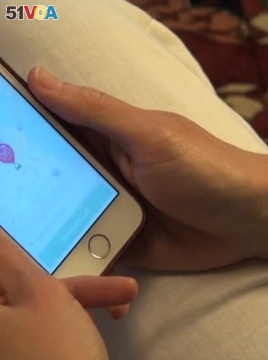May 28,2014
SAN FRANCISCO — People are sharing their work space, cars, and even their homes. The trend is called the sharing economy and it is changing the way some people do business and raising questions with government regulators.
In San Francisco, you can rent a bike, share a car, or get a ride from a ride-sharing service like Uber or Lyft. Lyft cars are identified by decorative mustaches on the front, and owners earn money by transporting passengers who pay for the ride on their smart phones.

“It is almost the classic example of what parents tell their kids not to do, right? Do not get in cars with strangers, we learn when we are little kids. Yet that is exactly what we are asking people to do,” said Lyft's Emily Castor, who noted the service recently expanded to 60 U.S. cities.
Many young professionals rely on the services, including Stanford University student Sam Mercer.
“It saves me time and money. I can split the fare with all my buddies,” he said
The new movement prizes access over ownership, according to Susan Shaheen, of the Transportation Sustainability Research Center at the University of California, Berkeley.
“It is taking a person’s relationship with a private personally-owned vehicle or leased vehicle and altering that,” she said.
Entrepreneur Noah Karesh of the sharing site Feastly (eatfeastly.com) co-founded the business in Washington, D.C. three years ago, matching people who love cooking and those who love to eat, while letting amateur chefs earn money by hosting house parties.
“[The choices include] Filipino food from a small island that you cannot find anywhere in the United States to a more experiential thing, like a foraging hike and a meal after that,” said Karesh.
Business owners and entrepreneurs of the international networking site Impact Hub share office space in a building that houses the San Francisco Chronicle newspaper. The group has shared work space in more than 50 cities.
Bike-riders share locker space or rent a bicycle through bikelink.org. Steven Grover started the business in Berkeley, and it has expanded to Los Angeles, San Diego and several other U.S. cities.
“It serves occasional cyclists as well as regular cyclists because there is no membership fee," Grover said. "You are not paying for BikeLink during the winter months if you’re not riding your bike.”
Hundreds of participants of the sharing economy met in San Francisco recently, together with investors, to discuss opportunities and challenges. Natalie Foster of the online sharing group Peers.org said the movement grew out of online networking.
"We believe it is more than non-profits or businesses, it is actually a movement of people who want a different sort of economy," Foster said.
It is an economy based on consumer ratings, as users share their experiences and rate a site online.
Not everyone is happy. Hotel owners say the worldwide home sharing site Airbnb encourages unregulated hotels. Ride-sharing sites are accused of running taxi services with little regulation.
Local and state authorities in the United States, and governments worldwide, are confronting the issue on a case-by-case basis.